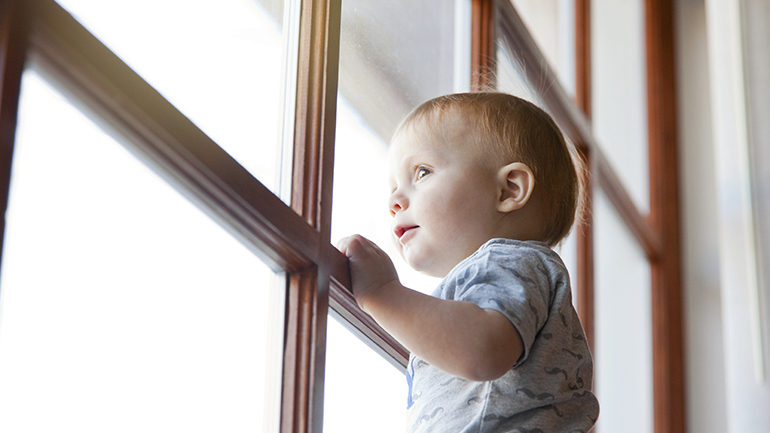
We're reminding parents and caregivers to make sure their windows and balconies are safe and secure for young children.
VANCOUVER – To kick off Safe Kids Week, BC Children’s Hospital, BC Emergency Health Services (BCEHS), together with all health authorities around the province are reminding parents and caregivers to make sure their windows and balconies are safe and secure.
Every year, paramedics respond to approximately 15 medical emergencies involving young children with injuries related to falls from a window or balcony. Already this year, at least five children have been treated at various BC hospitals after being injured this way.
“The injuries associated with window falls can be devastating,” said Dr. Ash Singhal, pediatric neurosurgeon and medical director, BC Children’s Hospital Trauma Program. “We see broken limbs, skull fractures and brain injuries that can cause life-long problems for children.”
Children are especially vulnerable to falls because they are curious, they love to climb and often don’t recognize when they are putting themselves at risk. Even small children are capable of pushing open an unlocked window and toddlers, who have a higher centre of gravity, can easily fall headfirst through a window screen if they lean against it.
“A few simple actions can make a home more secure for children and prevent devastating falls,” said BCEHS paramedic Marilyn Oberg. “Parents and caregivers should consider installing window and door safety locks which limit how wide they can open. This is a simple and effective measure to help keep children safe during the warm spring and summer months.”
Other tips to prevent falls from windows and balconies
- Don’t underestimate a child’s mobility; children begin climbing before they can walk.
- Move household items away from windows to discourage children from climbing to peer out.
- Toddlers may use anything as a step stool to get higher.
- Be aware that window screens will not prevent children from falling through – they keep bugs out, not children in.
- Install window guards on windows above the ground level. These act as a gate in front of the window.
- Or, fasten the windows, so that they cannot open more than 10 centimetres (four inches).
- Children can fit through spaces as small as 12 centimetres (five inches) wide. In either case, ensure there is a safe release option in case of a house fire.
- Don’t leave children unattended on balconies or decks. Move furniture or planters away from the edges as kids can climb up and over.
- Talk to your children about the dangers of opening and playing near windows, particularly on upper floors of the home.
Tips to keep children cool
- Stay hydrated – drink plenty of water. Avoid sugary, carbonated and caffeinated drinks to avoid dehydration.
- Eat cooling foods – raw fruit and vegetables help cool the body plus help with keeping hydrated. Freeze fruits and make homemade popsicles. Include foods that don’t need cooking – there are lots of recipes for cold soup that are healthy and cooling
- Keep room temperatures down – if you have air conditioning, set it to maintain a comfortable temperature. No air conditioning? Use fans to circulate air and keep blinds or curtains closed to reflect out sunshine and keep rooms cool.
- Dress for the weather – dress children in light weight breathable materials, or remove articles of clothing to help kids cool off. Keep long hair tied up or in braids to allow as much air as possible to evaporate sweat.
- Extend bath time – give the kids a cool bath and play with bath toys a bit longer usual. Throughout the day, use a damp cool cloth on your little one’s neck, face, arms and legs.
- Plan cool activities – head to an air-conditioned library or community centre for play time. If spending time outdoors, look for splash-pads suitable for young children. Don’t forget the sunscreen, sun hats and sun glasses and seek a shady area. Remember to bring extra water and encourage your littles ones to frequently sip.
BC Emergency Health Services (BCEHS) and BC Children’s Hospital are part of the Provincial Health Services Authority (PHSA). PHSA plans, manages and evaluates selected specialty and province-wide health care services across B.C., working with the five geographic health authorities to deliver province-wide solutions that improve the health of British Columbians.
Media contact
For media inquiries, please contact:
media@fraserhealth.ca
